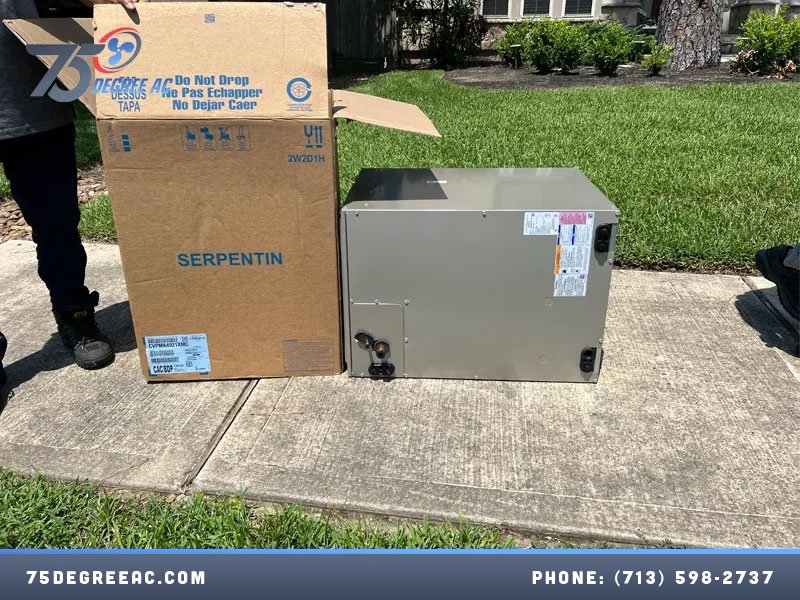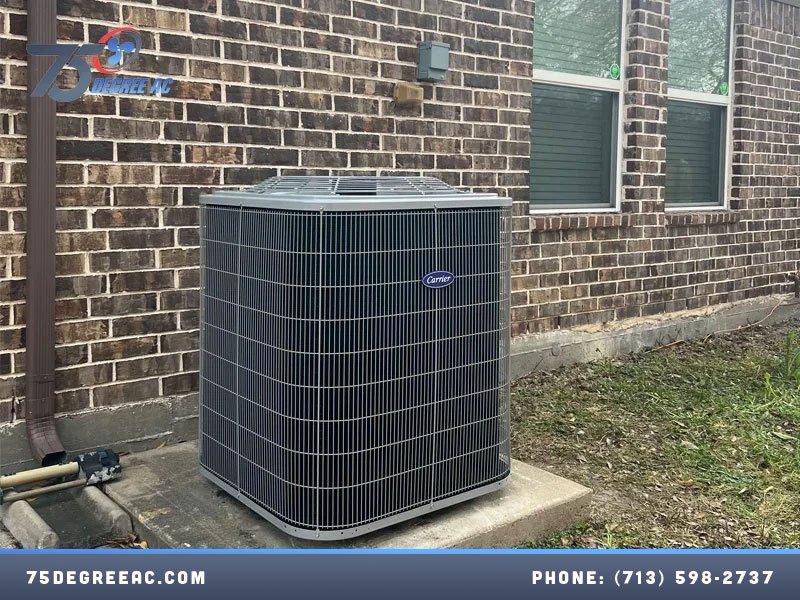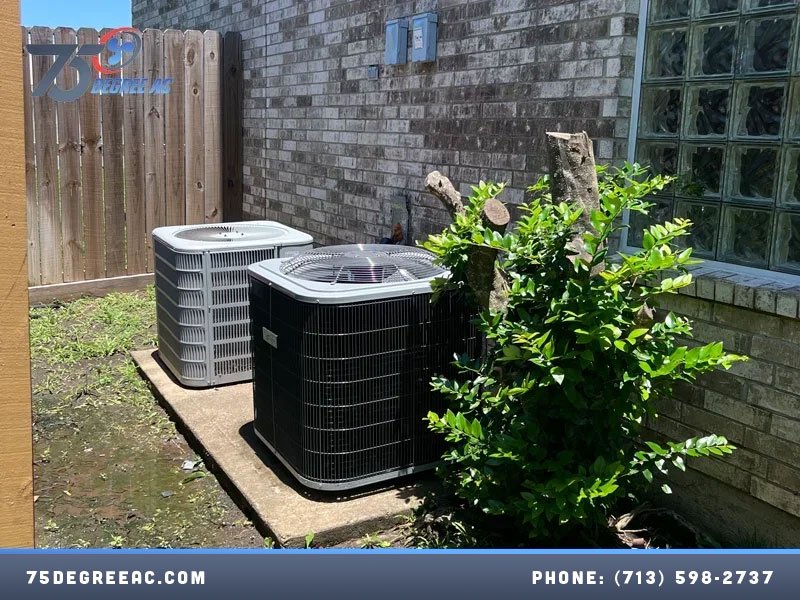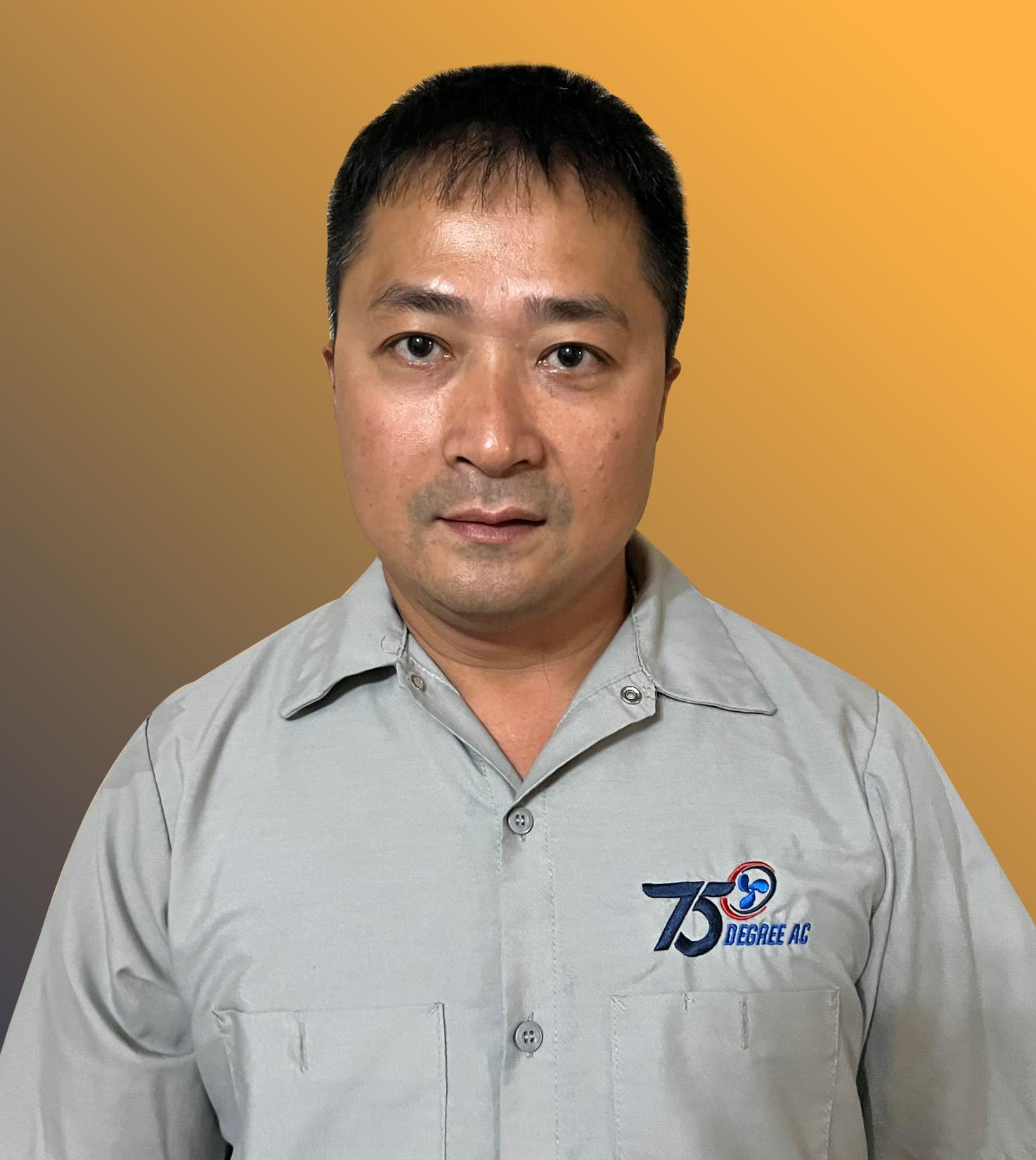The oppressive heat and humidity of Houston, Texas, can be a real challenge for homeowners, making a reliable and efficient air conditioning system a necessity. If you live in the Energy Corridor area of Houston, you know firsthand the importance of having a well-functioning AC unit, especially during the sweltering summer months. In this comprehensive blog post, we’ll explore the main considerations when it comes to air conditioning install Energy Corridor, Houston, TX, area.
Table of Contents
Choosing the Right Air Conditioning System for Your Home in Energy Corridor, Houston, TX
When it comes to selecting the right air conditioning system for your home in Energy Corridor, Houston, TX, there are several factors to take into account. The size of your home, the layout, energy efficiency, and your budget are all critical considerations. Let’s go into the details:
Determining the Appropriate AC Unit Size
The size of your air conditioning unit is a critical factor in ensuring optimal performance and energy efficiency. An undersized unit will struggle to cool your home effectively, while an oversized unit will short-cycle, leading to increased energy consumption and uneven cooling.

To determine the right size for your home, you’ll need to consider factors such as the square footage of your living space, the number of windows, the insulation levels, and the number of occupants.
| Home Size (sq ft) | Recommended AC Unit Size (tons) |
| 1,000 – 1,500 | 2 – 3 tons |
| 1,501 – 2,000 | 3 – 4 tons |
| 2,001 – 2,500 | 4 – 5 tons |
| 2,501 – 3,000 | 5 – 6 tons |
- Consult with a professional HVAC contractor to ensure the accurate sizing of your air conditioning unit.
- Consider the specific layout and design of your home, as this can impact the required unit size.
- Factor in any upgrades or renovations that may have been made to your home, as they can affect the cooling load.
Evaluating Energy Efficiency
Energy efficiency is an important factor to consider when choosing an air conditioning system for your Energy Corridor home. More energy-efficient units not only save you money on utility bills but also have a smaller environmental impact. Look for systems with high SEER (Seasonal Energy Efficiency Ratio) and ENERGY STAR® ratings, as these indicate superior energy performance.
- SEER ratings range from 13 to 25, with higher numbers indicating greater efficiency.
- ENERGY STAR-certified units meet strict energy efficiency guidelines set by the U.S. Environmental Protection Agency.
- Consider the long-term energy savings, as more efficient systems can offset the higher upfront cost.
Exploring Different AC System Types
There are several types of air conditioning systems available, each with its own advantages and considerations. In the Energy Corridor area, the most common options include:
- Central Air Conditioning
- Provides whole-home cooling through a network of ductwork.
- Offers consistent and efficient temperature control.
- Requires a larger upfront investment but can be more cost-effective in the long run.
- Ductless Mini-Split Systems
- Ideal for homes without existing ductwork or additions.
- Offers individual temperature control for different zones or rooms.
- Highly energy-efficient and can be more cost-effective for smaller homes.
- Heat Pumps
- Provide both heating and cooling, making them a versatile option.
- Highly energy-efficient, especially in milder climates like Houston.
- Can be integrated with existing HVAC systems or used as stand-alone units.
Consult with a professional HVAC contractor to determine the best system type for your Energy Corridor home based on your specific needs and preferences.
Cost of Air Conditioning Installation in Energy Corridor
The cost of air conditioning installation in Houston, TX, can vary considerably depending on several factors. Understanding the typical range of costs can help you budget and make informed decisions when it comes to your home’s cooling system.

Factors Affecting Air Conditioning Installation Costs
- System Type and Size: As mentioned earlier, the type of AC system (central, ductless, etc.) and the size or capacity of the unit (measured in tons) will directly impact the installation cost. Larger or more complex systems generally cost more.
- Existing Infrastructure: If your home already has ductwork or other HVAC infrastructure in place, the installation process may be easier and less costly. Retrofitting a home without existing ductwork can increase the installation expenses.
- Labor and Permits: The cost of labor for the installation, as well as any necessary permits or inspections required by local authorities, can also influence the overall price.
- Energy Efficiency and Features: More energy-efficient systems or those with advanced features, such as smart technology or zoned cooling, typically have a higher upfront cost.
- Location and Accessibility: The accessibility of your home and the complexity of the installation site can also affect the labor costs.
Typical Cost Ranges for Air Conditioning Installation
| System Type | Cost Range (including installation) |
| Central AC | $3,000 – $10,000+ |
| Ductless Mini-Split | $2,000 – $5,000 per indoor unit |
| Heat Pump | $4,000 – $12,000+ |
These cost ranges are general estimates and can vary depending on the specific factors mentioned above. It’s important to obtain multiple quotes from reputable HVAC contractors in the Energy Corridor area to get an accurate assessment of the project’s costs.
Financing Options and Incentives
To help offset the initial investment, there are several financing options and incentives available for air conditioning installation in the Energy Corridor area:
- Manufacturer and Retailer Financing: Many HVAC manufacturers and retailers offer financing plans or special promotions, allowing you to spread the cost over time.
- Local Utility Rebates: Check with your local utility company for any rebates or incentives available for energy-efficient AC system installations.
- Federal Tax Credits: The federal government may offer tax credits for the installation of qualifying high-efficiency HVAC systems.
- Home Improvement Loans: Explore options like home equity loans or personal loans to finance your air conditioning installation.
Discussing these financing options with your HVAC contractor can help you determine the most cost-effective solution for your home and budget.
Common Air Conditioning Installation Mistakes to Avoid in Energy Corridor, Houston, TX
When it comes to air conditioning installation in the Bear Creek Village or in the Energy Corridor area of Houston, TX, avoiding common mistakes can help ensure the system’s long-term performance, efficiency, and overall satisfaction. Let’s explore some of the most frequent issues and how to steer clear of them.
Incorrect System Sizing
As mentioned earlier, properly sizing the air conditioning unit for your home is necessary. Choosing a system that is too small will struggle to cool your living space effectively, while an oversized unit can lead to short-cycling, higher energy bills, and uneven cooling.
- Work with a professional HVAC contractor who will perform a thorough load calculation to determine the right system size.
- Avoid relying solely on rules of thumb or square footage estimates, as they can often result in inaccurate sizing.
- Ensure the contractor considers factors like insulation, window placement, and home layout when sizing the AC unit.
Inadequate Ductwork Design or Installation
In a central air conditioning system, the ductwork plays a central role in distributing cool air throughout your home. Poorly designed or installed ductwork can result in air leaks, uneven cooling, and reduced efficiency.
- Ensure the ductwork is properly sealed and insulated to minimize air losses.
- Work with a contractor who will evaluate the existing ductwork and make necessary improvements or replacements.
- Consider upgrading to a zoned HVAC system, which can improve airflow and temperature control in different areas of your home.
Improper Refrigerant Charging
The refrigerant charge, or the amount of refrigerant in the system, is essential for the air conditioning unit to function correctly. Undercharging or overcharging the refrigerant can lead to decreased efficiency, reduced cooling capacity, and potential system damage.
- Require your HVAC contractor to properly measure and charge the refrigerant according to the manufacturer’s specifications.
- Ensure they use the appropriate type of refrigerant for your specific AC system.
- Regular refrigerant level checks and top-ups can help maintain optimal system performance.
Lack of Maintenance and Upkeep
Proper maintenance and regular upkeep of your air conditioning system are essential to its longevity and efficiency. Neglecting these essential tasks can lead to various issues, including reduced cooling performance, increased energy consumption, and even premature system failure.
- Establish a regular maintenance schedule with your HVAC contractor, including tasks like filter changes, coil cleaning, and system inspections.
- Consider investing in a maintenance plan or service agreement to ensure your system receives the necessary care.
- Address any problems or concerns promptly to prevent minor issues from turning into larger, costlier problems.
Improper Electrical Connections
Ensuring the electrical components of your air conditioning system are correctly installed and connected is crucial for safe and efficient operation. Faulty wiring or insufficient electrical capacity can lead to system malfunctions, safety hazards, and even fire risks.
- Require your HVAC contractor to have a licensed electrician handle all electrical work related to the AC installation.
- Verify that the electrical service and circuit breakers are adequately sized to support the air conditioning system.
- Ensure all electrical connections are properly secured and grounded according to local building codes.
By being mindful of these common installation mistakes and working with a reputable HVAC contractor, you can help ensure a smooth and successful air conditioning installation process in your Energy Corridor home.
Finding Reliable Air Conditioning Installation Companies in Energy Corridor, Houston, TX
In terms of air conditioning installation in the Energy Corridor area of Houston, TX, finding a reliable and trustworthy HVAC contractor is essential.

With numerous options available, it’s vital to do your research and select a company that can deliver high-quality work and exceptional customer service. Here’s what to look for:
Experience and Expertise
When it comes to air conditioning installation, experience and expertise are key. Look for a contractor with:
- A proven track record of successful installations in the Energy Corridor area
- Knowledgeable technicians who can evaluate your home’s cooling needs and recommend the best solution
- Familiarity with the unique climate and installation challenges in the Houston region
Customer Satisfaction and Reviews
Checking a contractor’s reputation and customer satisfaction is very important. Look for:
- Positive reviews and testimonials from past clients in the Energy Corridor area
- A history of resolving customer issues and providing excellent service
- Recognition or awards from industry organizations or local publications
Warranty and Guarantees
Reputable HVAC contractors should stand behind their work and offer warranties or guarantees on both the equipment and the installation. Look for:
- Manufacturer warranties on the air conditioning system components
- Workmanship warranties from the contractor, covering the installation
- Guarantees on system performance and energy efficiency
Exceptional Customer Service
Throughout the air conditioning installation process, you should expect exceptional customer service from your HVAC contractor. This includes:
- Responsive communication and timely scheduling
- Thorough explanations of the installation process and system operations
- Attention to your specific needs and preferences
- Cleanup and proper disposal of old equipment
One company that consistently delivers high-quality air conditioning installation services in the Energy Corridor, Houston, TX, area is 75 Degree AC. With years of experience, a team of certified technicians, and a commitment to customer satisfaction, 75 Degree AC is a trusted choice for homeowners in the region.
For further information, don’t hesitate to contact 75 Degree AC.
- Phone: (713)-598-2737
- Address: 4214 Mangum Rd, Houston, TX 77092
- Email : 75degreeacservices@gmail.com

Hello all, my name is Kenny Ho, owner of 75 Degree AC. I had been a helper, installer, technician and HVAC owner for the past 13 plus years. I love to tackle HVAC issues and help customers solve HVAC problems. I believe in fair pricing, quality works and integrity.
